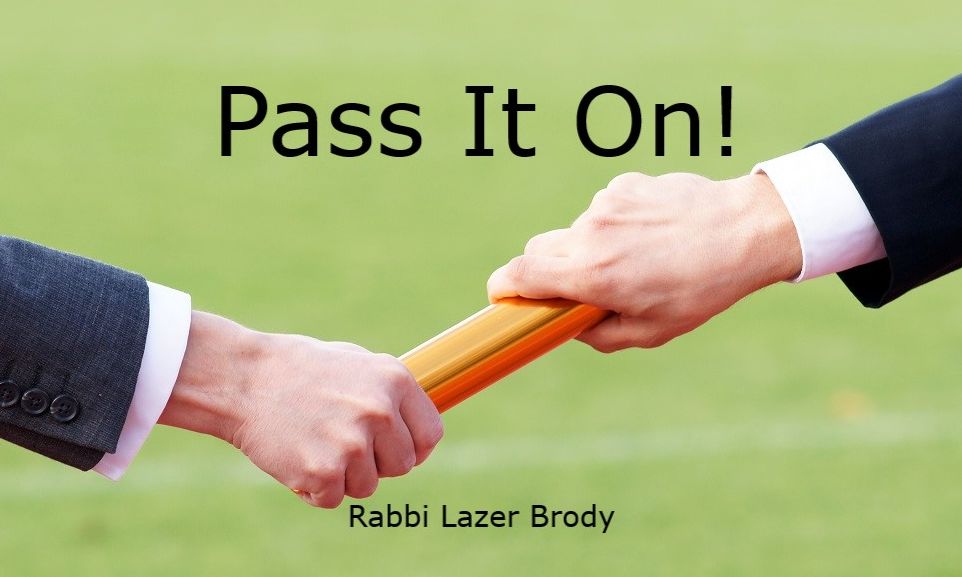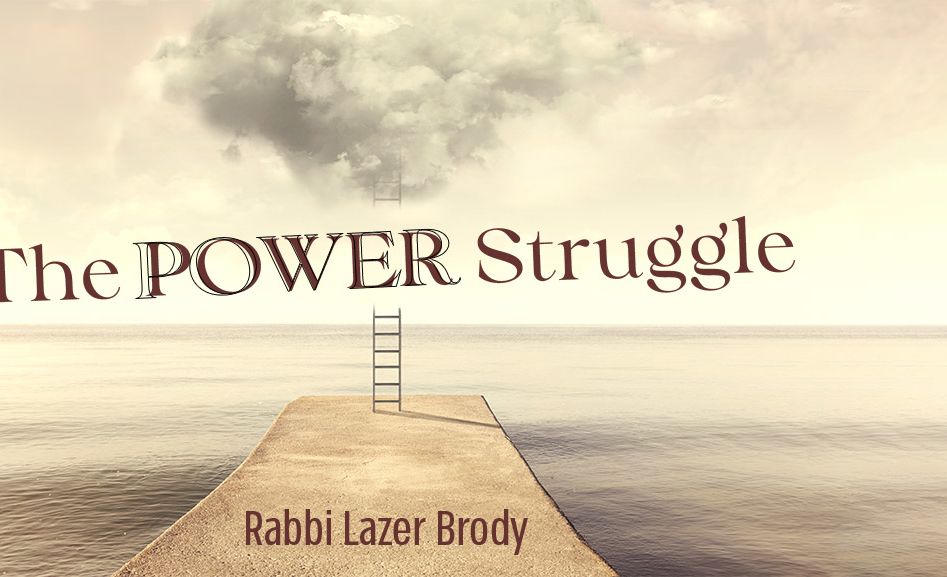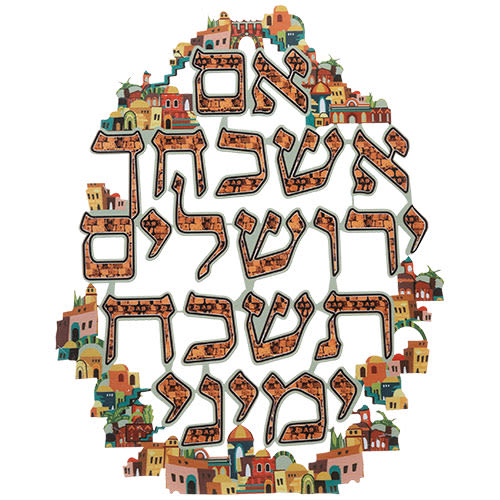
Zot HaBracha: Pass it On!
While Hashem commanded Moses to place his hand on Joshua's head and thereby ordain him, Moses placed both hands on Joshua's head...

“And Joshua bin Nun was filled with a spirit of wisdom because Moses had placed his hands upon him…” (Deuteronomy 34:9).
The Torah is telling us in the above passage that Joshua’s received his magnificent spirit of wisdom by virtue of the magnanimity of his holy teacher and spiritual guide, Moses. While Hashem commanded Moses to place his hand on Joshua’s head and thereby ordain him, Moses placed both hands on Joshua’s head and instilled in him everything that he possibly could. Jewish ethics and common decency call for Joshua to do his utmost in repaying such a prodigious spiritual debt, yet the day of Joshua’s ordination is the last day of his holy teacher’s life. How can he possibly repay Moses?
In similar fashion, I once asked Rabbi Yoel Bookshpan shlit’a, the mashgiach (spiritual dean) of the Karliner Yeshiva in Jerusalem, how I could possibly repay him. He welcomed me into his home when I was taking my first steps in observant Judaism and introduced me to the world of Chassidism and Chassidic yeshivas. He not only guided my Torah learning but taught me how a Jew should properly eat, drink, speak and dress. He and his family opened their pure hearts to me with patience, tolerance and generosity that are difficult to equal anywhere. When I left the Karliner Yeshiva to begin a new chapter in  my life at the Rabbinical Program of Aish HaTorah, I asked Rabbi “Yoelik” how I can begin to repay him. He answered as follows:
my life at the Rabbinical Program of Aish HaTorah, I asked Rabbi “Yoelik” how I can begin to repay him. He answered as follows:
“If a person borrows $100 from a friend, then he must repay him exactly $100, not a cent more or a cent less. In other words, a material favor such as a loan must be repaid in the exact amount to the person who did that favor for us. In contrast, a spiritual favor is different, for it cannot be estimated in monetary value; therefore, one can never know if he is returning the favor adequately. For example, the Rosh Yeshiva doesn’t expect that his students give him back the Torah he taught them. Instead, he asks them to pass his teachings on to others. His greatest wish is that his students became teachers. That way, his Torah spreads and influences an ever widening sphere. With that in mind,” Rabbi Yoelik told me, “You don’t owe me a thing. What you received from me, try your best to pass on to others.” I certainly have been trying…
Back to our passage at hand, Moses expects nothing from Joshua, but he ordains him with both hands so that Joshua will have the power to teach and spread Torah and the ways of Hashem to the entire Jewish People. This is what the very first mishna in Ethics of the Fathers tells us: “Moses received Torah from Sinai and passed it to Joshua, Joshua to the elders, the elders to the prophets…” and on down the line. The principle of passing spiritual favors on rather than returning them is the principle of our unbroken chain of Torah tradition from generation to generation, the mesorah.
With the above in mind, if someone does you a favor and helps you get closer to Hashem or enhance your emuna, you don’t need to return the favor. Pass it on and do the same for others! Help them strengthen their emuna! If we all decide to create a spiritual chain of spreading emuna, then there won’t be a soul on earth left who won’t be calling Hashem’s Name. That’s exactly what Hashem wants!
Just remember one thing: you can’t influence others unless you truly love them. Our desire to spread emuna is tremendously enhance when we strengthen our love for our fellow human being, showing a deep and genuine concern for all mankind. By virtue of our efforts, may Hashem redeem us all in the nearest future, together with in-gathering the exiles, the coming of Mashiach and the rebuilding of our Holy Temple in Jerusalem, speedily and in our days, amen!












Tell us what you think!
Thank you for your comment!
It will be published after approval by the Editor.